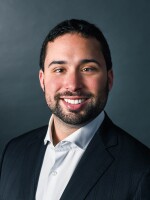Get TPR's best stories of the day and a jump start to the weekend with the 321 Newsletter — straight to your inbox every day. Sign up for it here.
The U.S. Department of Health and Human Services has announced that Dallas, San Antonio, Houston and Austin will form a new national health innovation network focused on improving patient experiences.
The network, part of the Advanced Research Projects Agency for Health (ARPA-H), will focus on research projects to address health problems like access, equity and prevention.
The collaboration will have a management base in Pegasus Park in West Dallas, located near Parkland Health and UT Southwestern Medical Center.
Lyda Hill Philanthropies CEO of Biotech Initiatives Tom Luce helped lead the bid to bring the project to Dallas. He said the city’s location was a plus for the network.
“The fact we’re in the central part of the country [with] easy access to both coasts, [and] we’ve got a great health care system, we decided to go for it,” Luce said.
The new hub also stands to benefit from San Antonio's established $44 billion health care and bioscience sector.
“San Antonio has long demonstrated how its collaborative approach to research, from the bench to the bedside, has led to timely and effective innovation, particularly during the recent COVID pandemic," said Martin Landon, CEO of BioBridge Global.
San Antonio will serve as the lead facilitator for the hub's creation of a new immersive experience design for patients in Texas.
"The unique partnership with Dallas and Austin, or the I-35 corridor, demonstrates — at a national level — our ability to maximize this unparalleled hub of discovery, innovation, and creating essential solutions for the most complex health challenges for the growing and increasingly diverse population in this region, in Texas and across the U.S,” said William Henrich, the president of the University of Texas Health Science Center San Antonio.
As the ARPA-H site gets ready to hire program managers and decide on grant recipients and focuses, Luce said he hopes researchers there will tackle issues like diabetes, infant mortality, cancer and heart disease.
“We have such a diversity of population that if you can’t solve the problems of Texas, you can’t solve the problems of the country,” he said.
While the Texas hub will focus on improving patient care, another new hub in Boston will improve investments into emerging biotech advancements.



